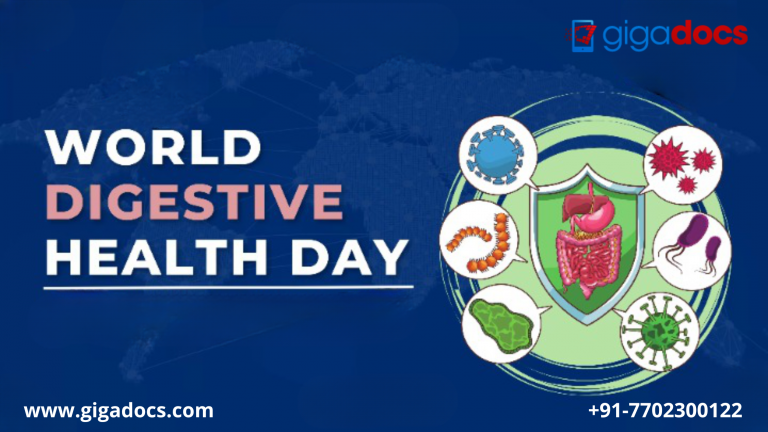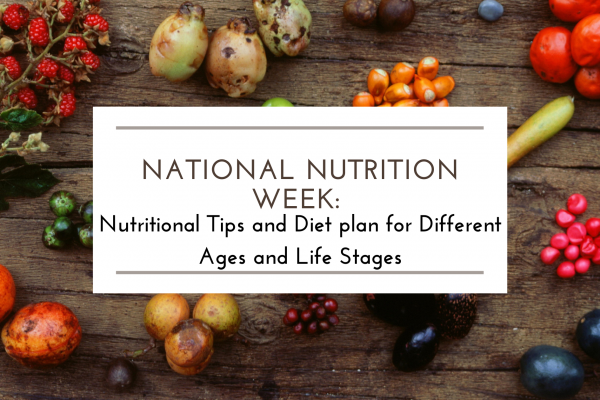How do we get nutrients from the food we eat?
The food we consume undergoes the digestion process that releases nutrients, including glucose, amino acids, fatty acids, vitamins, and minerals, which are transported to various cells in the body for energy, growth, and repair.
Have you ever wondered how much time it takes to digest food?
Digestion is a complex and dynamic process that can be influenced by multiple factors, making it challenging to provide an exact timeframe for the complete digestion of a meal. The time it takes to digest food can vary depending on several factors, including the type of food consumed, individual metabolism, and overall health. On average, digestion can take anywhere from 24 to 72 hours.
Why is good Digestion Important?
Good digestion is essential for overall health and well-being. Here are some reasons why it is crucial:
- Nutrient Absorption: Proper digestion allows food to break down into smaller molecules that the body can absorb and utilize. Nutrients such as carbohydrates, proteins, fats, vitamins, and minerals are essential for energy production, growth, repair, and overall bodily functions.
- Energy Production: The digestion process provides the body with the energy it needs to function. Carbohydrates are broken down into glucose, the primary energy source for cells. Fats are converted into fatty acids, which can also be used for energy production. Without effective digestion, energy levels may be compromised.
- Gut Health: The digestive system is home to trillions of beneficial bacteria known as gut microbiota. These bacteria are crucial in maintaining a healthy digestive system and overall well-being. They help break down certain indigestible fibers, produce vitamins, support immune function, and protect against harmful pathogens. Good digestion promotes a balanced and diverse gut microbiota linked to better digestive health, immune function, and mental well-being.
- Bowel Regularity: Proper digestion ensures the smooth movement of waste material through the digestive tract and regular bowel movements. Adequate fiber intake and efficient digestion help prevent constipation or diarrhea, promoting comfortable and healthy bowel function.
- Absence of Discomfort: Good digestion reduces the likelihood of digestive discomforts such as bloating, gas, indigestion, and stomach pain. When food is adequately broken down and digested, the chances of experiencing these discomforts are minimized.
- Overall Health: Digestion is intricately linked to various aspects of health, including immune function, hormone regulation, and even mental health. A healthy digestive system supports optimal nutrient absorption, toxin elimination, and balanced immune response, all contributing to overall wellness.
Taking care of your digestive health by adopting a balanced diet, eating mindfully, staying hydrated, managing stress, and addressing any digestive issues can help promote good digestion and enhance your overall well-being.
Symptoms of Poor Digestive Health
Poor digestive health can manifest in various symptoms that indicate an imbalance or dysfunction within the digestive system. Some common symptoms of poor digestive health include:
- Constipation: Difficulty or infrequency in passing stools, often characterized by hard, dry stools and a feeling of incomplete bowel movements.
- Changes in Bowel Habits: Alterations in bowel movements, such as changes in frequency, consistency, or color of stools.
- Abdominal Pain or Cramping: Persistent or recurring pain or cramps in the abdominal area, which may range from mild to severe.
- Indigestion: Discomfort or burning sensation in the upper abdomen, often associated with fullness, bloating, or belching.
- Heartburn: A burning sensation or discomfort in the chest, usually occurring after eating and often accompanied by acid reflux.
- Gas and Flatulence: Excessive gas production in the digestive system, resulting in frequent belching or passing gas.
- Bloating: A sensation of fullness or tightness in the abdomen, often accompanied by gas or discomfort.
- Foul Breath or Bad Taste: Persistent bad breath or an unpleasant taste in the mouth may indicate underlying digestive problems.
- Skin Problems: Skin conditions such as acne, eczema, or rashes may be related to poor digestion and imbalances within the gut.
- Diarrhea: Frequent loose or watery bowel movements, often accompanied by urgency and a sense of incomplete evacuation.
- Food Intolerances or Sensitivities: Adverse reactions to certain foods, often resulting in symptoms like bloating, gas, diarrhea, or abdominal pain.
- Fatigue and Lack of Energy: Feeling tired or lacking energy may be associated with poor nutrient absorption or chronic inflammation within the digestive system.
- Weight Fluctuations: Unexplained weight loss or weight gain that cannot be attributed to diet or physical activity changes.
- Nutritional Deficiencies: Deficiencies in essential nutrients, vitamins, or minerals, resulting from poor absorption or inadequate intake due to digestive issues.
It’s important to note that these symptoms can vary in severity and overlap with other health conditions. If you are experiencing persistent or concerning digestive symptoms, it’s advisable to consult with a healthcare professional for proper evaluation and diagnosis.
World Digestive Health Day
World Digestive Health Day (WDHD) is an annual campaign observed on May 29th to raise awareness about digestive disorders and promote good digestive health globally. It is organized by the World Gastroenterology Organization (WGO), an international association of gastroenterologists, hepatologists, and other healthcare professionals.
The primary goal of World Digestive Health Day is to educate the public and healthcare providers about the importance of maintaining a healthy digestive system and to highlight the impact of digestive disorders on individuals and societies.
Common Diseases Caused by Poor Digestive Health
Poor digestive health can contribute to developing or exacerbating various diseases and conditions. Here are some common diseases and disorders that can be caused or influenced by poor digestive health:
- Gastroesophageal Reflux Disease (GERD): This chronic condition occurs when stomach acid flows back into the esophagus, leading to symptoms like heartburn, regurgitation, and chest pain. Poor digestive health, such as a weakened lower esophageal sphincter or delayed stomach emptying, can contribute to GERD.
- Irritable Bowel Syndrome (IBS): IBS is a functional disorder characterized by abdominal pain, bloating, changes in bowel habits (diarrhea, constipation, or both), and other gastrointestinal symptoms. Poor digestive health, including alterations in gut motility, intestinal inflammation, and imbalances in gut microbiota, can play a role in IBS.
- Inflammatory Bowel Disease (IBD): This term encompasses conditions like Crohn’s disease and ulcerative colitis, which involve chronic inflammation in the digestive tract. Poor digestive health, including an abnormal immune response and dysbiosis in the gut microbiota, may contribute to the development and progression of IBD.
- Celiac Disease: It is an autoimmune disorder triggered by ingesting gluten, a protein found in wheat, barley, and rye. In individuals with celiac disease, the immune system responds to gluten by damaging the small intestine lining, leading to poor nutrient absorption and digestive symptoms.
- Gallstones: These are hardened deposits that form in the gallbladder, often composed of cholesterol or bilirubin. Poor digestive health, such as an imbalance in bile composition or impaired gallbladder emptying, can contribute to the formation of gallstones.
- Gastrointestinal Cancers: Chronic digestive conditions, such as inflammatory bowel disease (IBD) and long-standing untreated GERD, can increase the risk of developing gastrointestinal cancers, including colorectal cancer, esophageal cancer, and stomach cancer.
- Food Intolerances and Allergies: Poor digestive health can contribute to food intolerances or allergies, where certain foods trigger adverse reactions. Conditions like lactose intolerance or non-celiac gluten sensitivity can result from poor digestion or the inability to process specific components of food properly.
It’s important to note that poor digestive health may not be the sole cause of these diseases and conditions, as they can have multiple contributing factors. However, maintaining good digestive health through a balanced diet, regular exercise, stress management, and seeking appropriate medical care can help prevent or manage these conditions effectively.
Which foods help you with Digestion?
Certain foods can support digestion and promote a healthy digestive system. Here are some examples of foods that can help improve digestion:
- Fennel: Fennel seeds or fresh fennel bulbs can help ease digestive issues such as bloating, gas, and indigestion. Fennel has carminative properties that promote the movement of gas through the digestive tract.
- Leafy Greens: Incorporate leafy greens like spinach into your diet. Green vegetables are rich in fiber, vitamins, minerals, and antioxidants, all contributing to digestive health.
- Lean Proteins: Opt for lean protein sources like skinless poultry, fish, and legumes. These proteins are more accessible to digest than fatty meat cuts, which can slow down digestion.
- Water: Staying hydrated is crucial for proper digestion. Drinking adequate water throughout the day helps soften stools, maintain the flow of digestive juices, and prevent constipation.
- Ginger: Ginger has anti-inflammatory properties and can help soothe the digestive system. It may aid in relieving indigestion, nausea, and bloating. Enjoy ginger in fresh, powdered, or tea form.
- Fiber-Rich Foods: Include fruits, vegetables, whole grains, legumes, nuts, and seeds in your diet. These foods provide dietary fiber that promotes regular bowel movements and helps prevent constipation. Fiber also supports the growth of beneficial gut bacteria.
- Yogurt and Probiotic-Rich Foods: Yogurt, kimchi, and other fermented foods contain beneficial bacteria (probiotics) that can help maintain a healthy balance of gut microbiota. These foods can support digestion and enhance nutrient absorption.
- Papaya and Pineapple: These fruits contain enzymes (papain in papaya and bromelain in pineapple) that aid in breaking down proteins and supporting digestion. They can be particularly helpful for individuals with insufficient stomach acid or those experiencing digestive discomfort after protein-rich meals.
- Peppermint: Peppermint has a calming effect on the digestive system and can help relieve symptoms like bloating, gas, and indigestion. Peppermint tea or incorporating fresh mint leaves into meals can be beneficial.
- Whole Grains: Choose whole grains like oats, quinoa, brown rice, and whole wheat, which provide fiber and nutrients that support healthy digestion. These grains can help regulate bowel movements and provide sustained energy.
Remember, individual tolerance to different foods may vary. If you have specific dietary concerns or medical conditions, it’s advisable to consult with a healthcare professional or registered dietitian for personalized recommendations tailored to your needs.
Teleconsultation and Booking Dietitians and Gastroenterologists on the Gigadocs app
Suppose you have concerns about your digestive health and are considering a teleconsultation. In that case, we advise you to contact a healthcare provider or a telehealth service provider on the Gigadocs app to discuss a physical examination. They can guide you on whether an in-person evaluation is required or teleconsultation can effectively address your concerns. Book diagnostic tests (like endoscopy, colonoscopy, or imaging studies) or procedures necessary for an accurate diagnosis or treatment on the Gigadocs app-
Download the Gigadocs app from-
- IOS App – apple.co/2W2iG4V
- Android App – bit.ly/33AQoRC
To know more e-mail, at info@gigadocs.com




